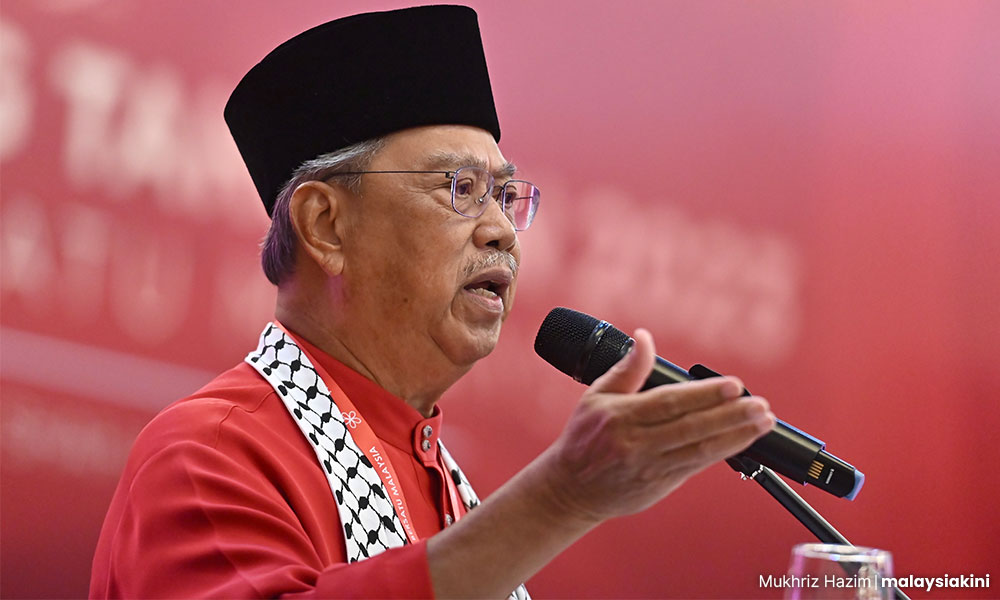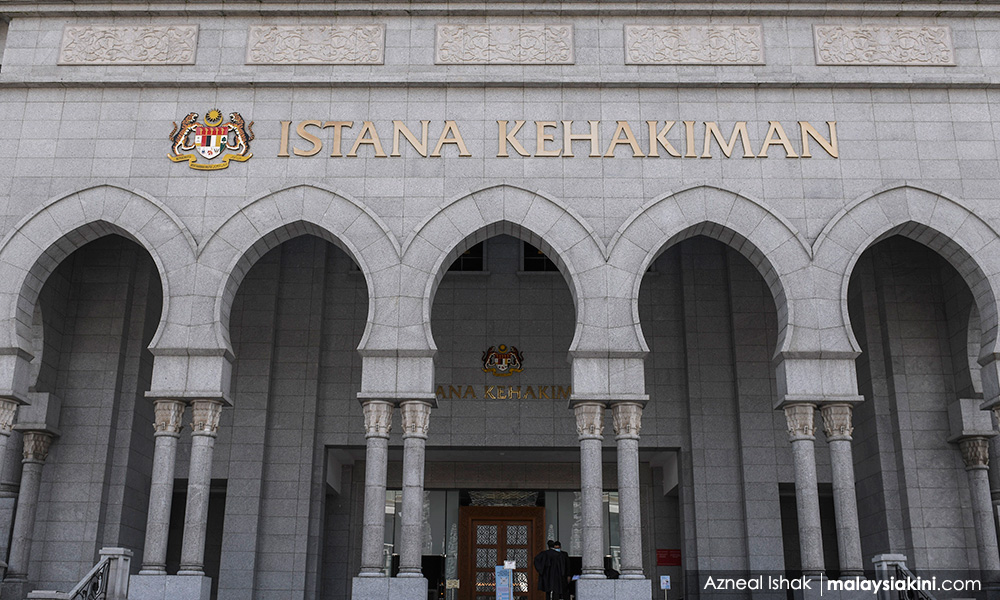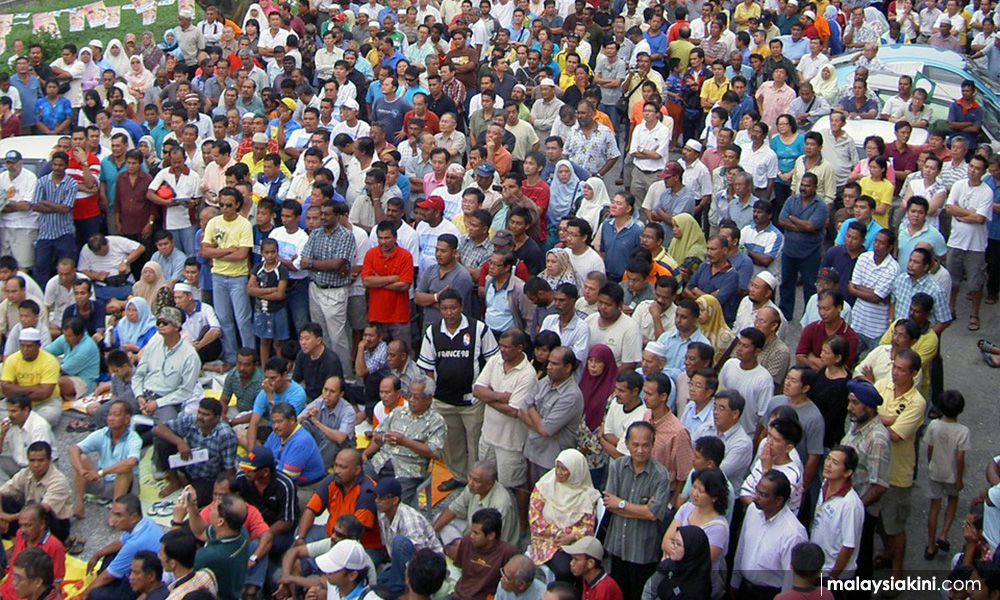As PKR’s party leaders adopted a defensive and denial mode in their party convention of growing loss of public support last weekend, reminiscent of Umno, Malaysians are increasingly turning away from politics.
If there has been one important trend in the past few years, it is a growing ambivalence and distrust in politicians.
The last year of Anwar has deepened these sentiments, with more believing politicians are the problem rather than the solution to Malaysia’s challenges.
This expansion of negativity about politics, accentuated by the hardship of the Covid-19 crisis and divisive use of racialised politics, reinforces the view that despite repeated elections where empowered voters opted for change, there is a view that little is changing in politics.
A common public refrain about the unity government (and the opposition) is that nothing has changed.
Most certainly, older leaders are still staying around, refusing to make way for a new generation and holding on to power. A case and point is Bersatu’s Muhyiddin Yassin this weekend.

Nevertheless, there are broad shifts taking place in Malaysian politics. Most of these are driven by changes brought about by Malaysians themselves – new attitudes, rise of different political discourses and the results (sometimes unintended) of widening political space.
The past year has showcased both these ongoing trends and their limits.
Stronger institutions
Let’s start with some positives over the last year. Since 2018, with Pakatan Harapan in power, there has been a strengthening of political institutions, notably the judiciary and Parliament.
While some court cases (particularly those involving politicians) raise legitimate questions - especially when judge(s) do not provide proper written judgment(s) - the variation in legal outcomes and overall increased professional grounding of legal decisions - speaks to a stronger judiciary.
Importantly, while serious obstacles remain, more ordinary citizens are finding justice through courts.
The list of landmark cases during the past year from long stateless Wong Kueng Hui’s granting of citizenship, refugee worker Ahmed’s challenge of his dismissal to Loh Siew Hong’s fight over her children’s conversion and Sam Ke Ting’s appeal illustrate how courts become venues for justice.

It is not just for individuals, as the seven-year Bukit Kiara (Taman Rimba Kiara) battle shows.
Space is also expanding in Parliament, with parliamentary select committees playing more important roles in discussing problems and dissecting legislation.
The Parliament is no longer a rubber stamp for the government of the day, and, importantly, it is also beginning to set agendas on issues. Illustrative is the parliamentary committee’s call for refugees to have the right to work.
Over the last year, these positive institutional trends have continued, but it has also become evident that meaningful reform of the powers of the executive branch is needed, notably more independence in handling legal cases and greater respect for the inputs and oversight of Parliament.
Old concentration-of-power practices run deep, especially when these are being reactivated out of insecurity.
More robust policy debates
Positively paralleling institutional strengthening is a continued deepening of policy discussions. This was evident in PKR’s party convention over the weekend, for example, and has been increasingly evident in the debates in Parliament.
These discussions are widening the most in public, in podcast discussions such as “Keluar Sekejap” and in the media with more features on the environment, for example.
Civil society and the private sector are contributing as well, although many business interests continue to pressure policy change outside of the public eye in areas such as tobacco.
As democracy in Malaysia has taken root, political contestation has moved from elections to lobbying and differences over legislation.
This shift requires more transparency in political engagement and further heightens the pressing call for a Political Financing Bill (still on hold) to assure that influence is not (further) skewed against public interest.
Worsening race relations
Greater space, however, has a darker side, as the last year has seen a further decline in relations among communities.
Despite Anwar coming into government with support from a breadth of different groups of Malaysians and a platform of inclusion, there have been no meaningful programmes to promote harmony or foster tolerance.
The electoral data from the state elections and discourse on social media shows that the polarised divisions are sharper than ever. The unity government is operating in an unprecedented era of social division and fragmentation.

On (too) many levels, conditions have worsened. There have also been worrying incidents where the rights of minorities have not been protected, from crosses to songs. Too often incidents involving individuals have been seen to stoke discord among communities, as emotions are raw.
The Anwar administration’s perceived focus on its weakness of support from the Malays at the expense of other communities has left a serious imprint with minorities feeling more left behind. Frustration is evident across communities.
It has been Malaysians themselves who have been reaching out, in interfaith initiatives, films and criticisms of the hateful rhetoric when the government has all too often stayed silent.
On one hand, citizens taking the initiative to address Malaysia’s challenges is critical ahead. On the other hand, Malaysia needs nation-oriented leadership.
Unfortunately, it is clear that the current political leadership across political parties are too wrapped up in either staying in power or in the case of the opposition getting into power. They are too focused on themselves rather than nation-building or governance.
READ: Holding on: A year of Anwar - Part 1
The infighting and power struggles in different political parties are worsening this, from Bersatu to PKR.
A year after the 15th general election and a new government, Malaysia is still (sadly) on hold to politicking.
Ironically, after five years of political instability, elites continue to be locked into this mode, undercutting reforms and policies needed to move the country forward. - Mkini
BRIDGET WELSH is an honourary research associate of the University of Nottingham’s Asia Research Institute, a senior research associate at Hu Fu Center for East Asia Democratic Studies, and a senior associate fellow at The Habibie Centre. Her writings can be found at bridgetwelsh.com.
The views expressed here are those of the author/contributor and do not necessarily represent the views of MMKtT.




No comments:
Post a Comment
Note: Only a member of this blog may post a comment.